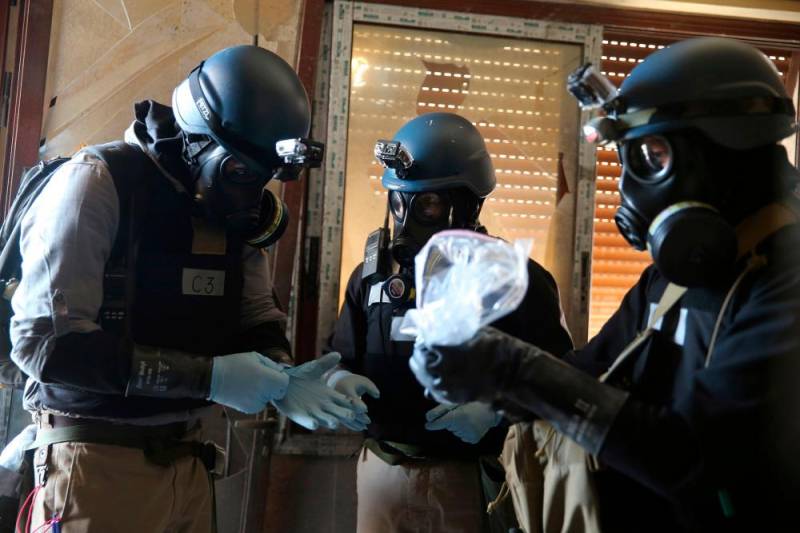Declared chemical arms to be destroyed in 'weeks': watchdog

Stay tuned with 24 News HD Android App

The world's chemical weapons watchdog said Wednesday that the process of destroying tens of thousands of tonnes of declared chemical stockpiles will be completed "within the next few weeks."
The watchdog, which also unveiled its new chemical laboratory and high-tech facility outside The Hague, warned that new challenges to fight chemical weapons were emerging such as threats posed by artificial intelligence.
"More than 70,000 tonnes of the world's most dangerous poisons have been destroyed under the supervision of the OPCW," said Fernando Arias, head of the Organisation for the Prohibition of Chemical Weapons.
A small remnant left in the United States "will be destroyed within the next few weeks," Arias told journalists on a tour of the new facility, which opens its doors next week Friday.
Since the Chemical Weapons Convention, the treaty that bans the use of toxic arms, was implemented in 1997, the OPCW had destroyed 72,118 tonnes of stockpiles declared by countries around the world, or 99 percent.
"Around 127 tonnes of declared weapons remained to be destroyed at two facilities, one in Denver, in Colorado, as well as at the Blue Grass chemical facility in Kentucky," a senior OPCW official told AFP.
"After 26 years, this is a major achievement for the organisation," she added.
Abandoned stockpiles
But the official warned that thousands of abandoned chemical weapon stockpiles remain, particularly remnants from the Japanese occupation of China before World War II.
Chemical weapons dating as far back as World War I also remain a very real danger today.
"The remnants of four chemical weapons are still discovered every day," the official said.
The OPCW was founded in 1997 to uphold the Chemical Weapons Convention and won the Nobel Peace Prize in 2013.
The regime of Syrian President Bashar al-Assad agreed in 2013 to join the OPCW and give up all chemical weapons, following a suspected sarin nerve gas attack that killed 1,400 people in the Damascus suburb of Ghouta.
But it has been repeatedly accused of chemical weapons attacks since then.
'New poisons'
Speaking at the new facility in Nootdorp, about 12 kilometres (7,5 miles) from its headquarters in The Hague, Arias said OPCW chemical weapons inspectors "learnt a lot in Syria".
"The challenge now is to retain the expertise gained during the OPCW's missions to Syria and organise it... otherwise it will be lost," Arias said.
The new centre will replace an older, out-dated and much smaller facility in The Hague.
Built at a cost of more than 34 million euros ($37.5 million), it will include upgraded laboratory facilities, as well as storage space for the expensive and complex equipment used by the OPCW's inspectors.
It will also have a training hub to instruct officials from its 193 member states to deal with emerging chemical weapon threats.
"With AI, new poisons are being produced and its now much easier than before," Arias warned.
Radical Islamist groups are also developing chemical warfare capacities including in Africa, OPCW officials warned.
Many OPCW member states are developing countries who will benefit from the new facility in fighting chemical weapons.
"Our goal is to guarantee that these chemicals don't fall into the wrong hands" and the new centre "is an essential tool to constantly manage that expertise," Arias said.
